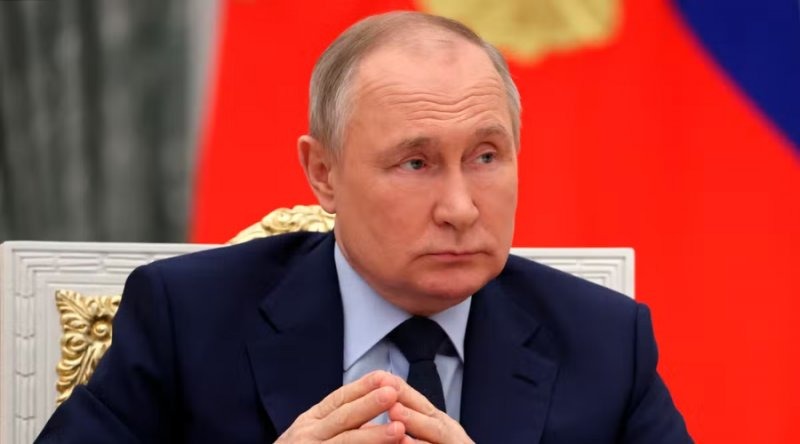Vladimir Putin’s Health.
The debate about Putin’s health began in February, right before the invasion, when his strange behavior during a televised meeting of senior staff left observers confused. According to subsequent commentary, the character was described as weird, creepy, off-the-wall, among other things.
With his seemingly self-defeating attack on a peaceful neighbor, there was reasonable discussion about whether he was mentally ill. “Rigid and obsessive,” Emmanuel Macron said, after meeting him, calling him “more isolated and impatient” than in the past.
Obama’s opinion was echoed by former secretary of state Condoleezza Rice. “Putin is a different man now,” she said. “He was always cold and calculated.” But now things are different. “He seems to be erratic.” As Russia’s war crimes in Ukraine were exposed, speculation and the seriousness of the claims increased. An anonymous Telegram channel, SVR General, claiming inside information, claimed that Putin was in poor health and preparing to temporarily hand over power to Nikolai Patrushev, due to his cancer treatment.
The British tabloids picked up this news, which heightened speculation. There were reports on March 13 that everyone in the Russian security service FSB received an email warning them not to believe rumors about Putin’s “terminal condition,” and a former MI6 officer said President Putin was dying. The Kremlin’s closest ally was caught on tape claiming that he had blood cancer.
Every report became more lurid. On May 29, four British tabloids reported that intelligence sources believed that Putin had already died, and body doubles were being used to cover up his death, while others claimed that Putin would live for three years. Meanwhile, US intelligence agencies jumped on the bandwagon, assessing that Putin was treated for cancer in April and survived an assassination attempt in March.
Multiple Kremlin denials have been issued. If the regime is like a house of mirrors, a place where the truth is hidden and constant disinformation is conducted, then why are there so many leaks, and for what purpose?
It is no secret that speculation about Putin’s health has a long history. This speculation began at the start of his presidency in the early 2000s. A great deal was written about his health. In 2003, a photo published by Kommersant-Vlast magazine showed Putin with eczema on his leg. A study by Brenda Connors, a research assistant at the Naval War College in Newport, was featured in an article in The Atlantic in 2005. A “motion analyst” by training, Connors told The Atlantic that after watching a video from Putin’s first inauguration, she noticed that his right arm and leg don’t work, which suggests he’s suffered a stroke or trauma as a child.
In a 2008 Pentagon study, it was claimed Putin had Asperger’s disease. In 2010, there was discussion of Putin’s mental health and his use of Botox, and photos showed Putin with a black eye. Rumors picked up again in 2012 after Yoshihiko Noda postponed his planned visit to Russia, citing Putin’s “health problems.”
The Kremlin has tried to suppress these rumors at least publicly. Sergei Mironov, head of the Medical Center of the Presidential Administration, was interviewed in the early 2000s. “Vladimir Putin is healthy and strong. He doesn’t have any medical issues. . According to Putin, he is much younger than his 50 years in terms of blood pressure stability, electrocardiogram readings, functional loads, lung capacity, and other measurements. Kremlin officials were concerned with creating an image of a man in control, which meant they rarely talked about illnesses or injuries, although Putin himself admitted to having an old sports injury in 2021.
No matter what the official sources said, the rumor mill continued to spin. As Russia prepared to annex Crimea and conduct military operations in Eastern Ukraine, The Week reported that Putin was “seriously ill” and “possibly” suffering from cancer. The article cited “seasoned observers” as its source and speculated that Russia’s leader is “clearing his conscience” by acting graciously like granting amnesty to incarcerated former oil tycoon Mikhail Khodorkovsky.
As Russia occupied portions of Ukraine in 2014, the New York Post reported that Putin had deadly pancreatic cancer, citing unidentified “sources.” The report suggested the information came from an elderly German doctor who treated Putin, prompting Putin’s rush to invade Ukraine. The headline read, “Cancer rumors swirl around Putin.” What do you think?
Valery Solovei, former MGIMO professor and political scientist, predicted that Putin’s career was coming to an end as the 2018 elections approached. Inshe TV published an article entitled, “While there have been rumors in the past that Vladimir Putin might resign due to health reasons, this one seems more plausible.” The article cited Solovei’s interview (long since deleted) that said Putin might step down and new elections might be held before the end of his term.
It is clear that didn’t happen, but Solovei again made headlines in 2020. It was reported in several British tabloids shortly after President Biden’s election that Solovei had learned from sources “at the epicenter of decision making” that Vladimir Putin had undergone surgery for cancer in February 2020. Putin said again he would leave power in 2021 and that he had Parkinson’s disease. In July 2020, a sensational headline in Russian media reported that Putin (but perhaps not even aware of the condition) had leprosy.
We can’t be sure whether these rumors originating in Russia’s intelligence services are intended to cause distraction, unmask the Russians who hope to come to power, or offer false hope that a change is just around the corner.
Even while Putin and his regime are allegedly suffering from an exotic range of various cancers and illnesses, both physical and mental, they have committed countless atrocities, assassinations, sabotages, operations to subvert democracy, and chemical and radiological attacks as well as war crimes in Ukraine, Syria, Chechnya, Georgia, the Czech Republic, Germany, the UK, the US, and numerous other countries.
We should not focus on the health of the Russian leader, but instead develop a strategy to stop this regime and break the corrupt and cruel system that has produced leaders like Stalin and Putin. Naturally, the dictator will eventually leave office or die; the danger is that someone as horrible, or worse, will replace him.
Olga Lautman is a journalist specializing in Russia, Ukraine, and Eastern Europe as well as the host of the Kremlin File podcast.

